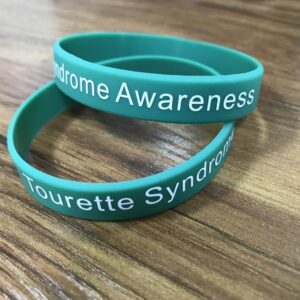For many people, living with Tourette OCD can be a real challenge. This condition is characterized by recurrent, involuntary and excessive movements or vocalizations that are often accompanied by intrusive thoughts of obsessive-compulsive behaviour (OCD). Though this disorder is not as common as other mental health issues, it’s important to be aware of its presence and understand the different types and treatment options available. This article will provide an overview of Tourette OCD, including an understanding of its symptoms, types and treatments.
Contents
- 1 What is Tourette OCD?
- 2 What are common OCD tics?
- 3 The Different Types of Tourette OCD
- 4 Causes and Symptoms of Tourette OCD
- 5 Risk Factor For Tourette
- 6 Social Impact Of Tourette On Individual And Family
- 7 When To See A Doctor?
- 8 What are the Treatments for Tourette OCD?
- 9 What is the mildest case of Tourette’s?
- 10 Conclusion
What is Tourette OCD?

There are many different types of OCD, and Tourette OCD is just one of them. People with this disorder have the compulsion to perform certain repetitive behaviours or tics, often involving movement or vocalization. These can be very mild or quite severe, and they can significantly interfere with a person’s quality of life.
Tourette OCD is thought to be relatively rare, and it is not well understood. It is believed to be caused by a combination of genetic and environmental factors. There is no known cure for it, but there are treatments that can help lessen the symptoms.
If you or someone you know has Tourette OCD, it is important to seek professional help. A qualified mental health professional can provide support and guidance in dealing with this condition.
What are common OCD tics?
There are many different types of OCD tics, but some of the most common include:
-Excessive hand-washing
-Checking things repeatedly
-Arranging things in a certain order
-Counting or repeating words or phrases
These tics can be very distressing and interfere with daily life, but there are effective treatments available.
The Different Types of Tourette OCD
There are three different types of Tourette OCD:
1. Motor tics: These are involuntary movements that can involve any part of the body. Common motor tics include blinking, facial grimacing, head jerking, and shoulder shrugging.
2. Phonic tics: These are noises that are produced involuntarily, often involving grunting, throat clearing, or snorting.
3. Verbal tics: These involve saying words or phrases involuntarily, often repetitively. Verbal tics can be either simple (e.g., repeating a word) or complex (e.g., saying a phrase that doesn’t make sense).
Causes and Symptoms of Tourette OCD
 There are many possible causes of Tourette OCD, but the most likely cause is a combination of genetic and environmental factors. It is thought that Tourette OCD may be caused by a glitch in the brain’s wiring, which makes the person more susceptible to tics and compulsions. There may also be a family history of Tourette OCD or other mental health conditions.
There are many possible causes of Tourette OCD, but the most likely cause is a combination of genetic and environmental factors. It is thought that Tourette OCD may be caused by a glitch in the brain’s wiring, which makes the person more susceptible to tics and compulsions. There may also be a family history of Tourette OCD or other mental health conditions.
The symptoms of Tourette OCD can vary greatly from person to person. Some people only have mild symptoms, while others may have more severe symptoms that interfere with their daily life. The most common symptom is the presence of tics, which are involuntary movements or vocalisations that can be repetitive and often bizarre. Tics can be mild, such as eye blinking or head shaking, or they can be more severe, such as hitting oneself or making obscene gestures. People with Tourette OCD often feel the urge to do their tics, which can be very distressing.
Risk Factor For Tourette
 There are many risk factors for Tourette OCD, and it is important to understand them in order to effectively treat the condition. Some of the most common risk factors include:
There are many risk factors for Tourette OCD, and it is important to understand them in order to effectively treat the condition. Some of the most common risk factors include:
1. Genetics: This disorder is often hereditary, so if you have a family member with the condition, you may be more likely to develop it yourself.
2. Gender: Males are much more likely to develop Tourette OCD than females.
3. Age: The condition usually begins in childhood or adolescence.
4. Stressful life events: Exposure to stressful situations can trigger the onset of Tourette OCD.
Social Impact Of Tourette On Individual And Family
The social impact of Tourette’s can be significant, as the disorder can make it difficult for affected individuals to interact with others. It can also be hard for family and friends to understand and accept the condition. There is often a lot of misinformation about Tourette’s, which can make it difficult for those who don’t have the disorder to empathize with those who do.
Despite the challenges, many people with Tourette’s live full, happy lives. There are numerous support groups and resources available to help people with Tourette’s and their loved ones cope with the condition. With understanding and patience, anyone can learn to live successfully with Tourette’s Disorder.
When To See A Doctor?
There is no one answer to the question of when to see a doctor about Tourette OCD. Some people may choose to wait until their symptoms become severe, while others may seek help as soon as they realize something is wrong. Ultimately, the decision of when to seek medical help is a personal one.
If you are experiencing any of the following symptoms, you should consider making an appointment with your doctor:
-You feel like you can’t control your urges or tics
-Your tics are impacting your quality of life
-Your tics are causing you distress or anxiety
-You suspect you may have a co-occurring condition such as OCD or ADHD
What are the Treatments for Tourette OCD?
There is no one-size-fits-all treatment for Tourette OCD, but there are many effective options that can help lessen the symptoms and improve the quality of life. The most common treatments include:
1. Behavior therapy: This can help to retrain the brain and reduce tics and compulsions.
2. Medication: There are several types of medication that can be effective in treating Tourette OCD, including antipsychotics, antidepressants, and beta blockers.
3. Deep brain stimulation: This is a surgical procedure that involves implanting electrodes into the brain to help control tics and compulsions.
If you or someone you know is living with this disorder, it’s important to seek out professional help in order to find the best possible treatment plan. With the right support, it is possible to manage this condition and lead a fulfilling life.
What is the mildest case of Tourette’s?

When it comes to Tourette’s, there is a wide range of severity. Some people with Tourette’s only have very mild tics, while others have much more severe tics that can interfere with their daily lives.
The mildest case of Tourette’s would be someone who has very infrequent and mild tics. These tics might not be noticeable to others and might not cause any problems in the person’s life. In some cases, people with mild Tourette’s might not even be aware that they have the condition.
If you think you or someone you know might have Tourette’s, it’s important to see a doctor or specialist for an accurate diagnosis. There is no one-size-fits-all treatment for Tourette’s, but there are many effective ways to manage the condition and reduce the severity of tics.
Conclusion
Tourette OCD can be a very complex disorder, but with the proper treatment and support from family and friends, individuals can live successful lives. It is important to recognize that those living with this disorder should not feel ashamed or embarrassed by their condition. With increasing awareness about this disorder, more people are becoming aware of its signs and symptoms which may help them better understand what a loved one might be going through. Ultimately, understanding Tourette OCD helps us provide better care for those affected by it.
For more information and guidance, please contact OCDMantra. OCD is a mental health disorder characterized by obsessions and compulsions. If you have any queries regarding OCD treatment, OCD Counseling, ERP therapy experienced therapists at OCDMantra can help: Book a trial OCD therapy session


